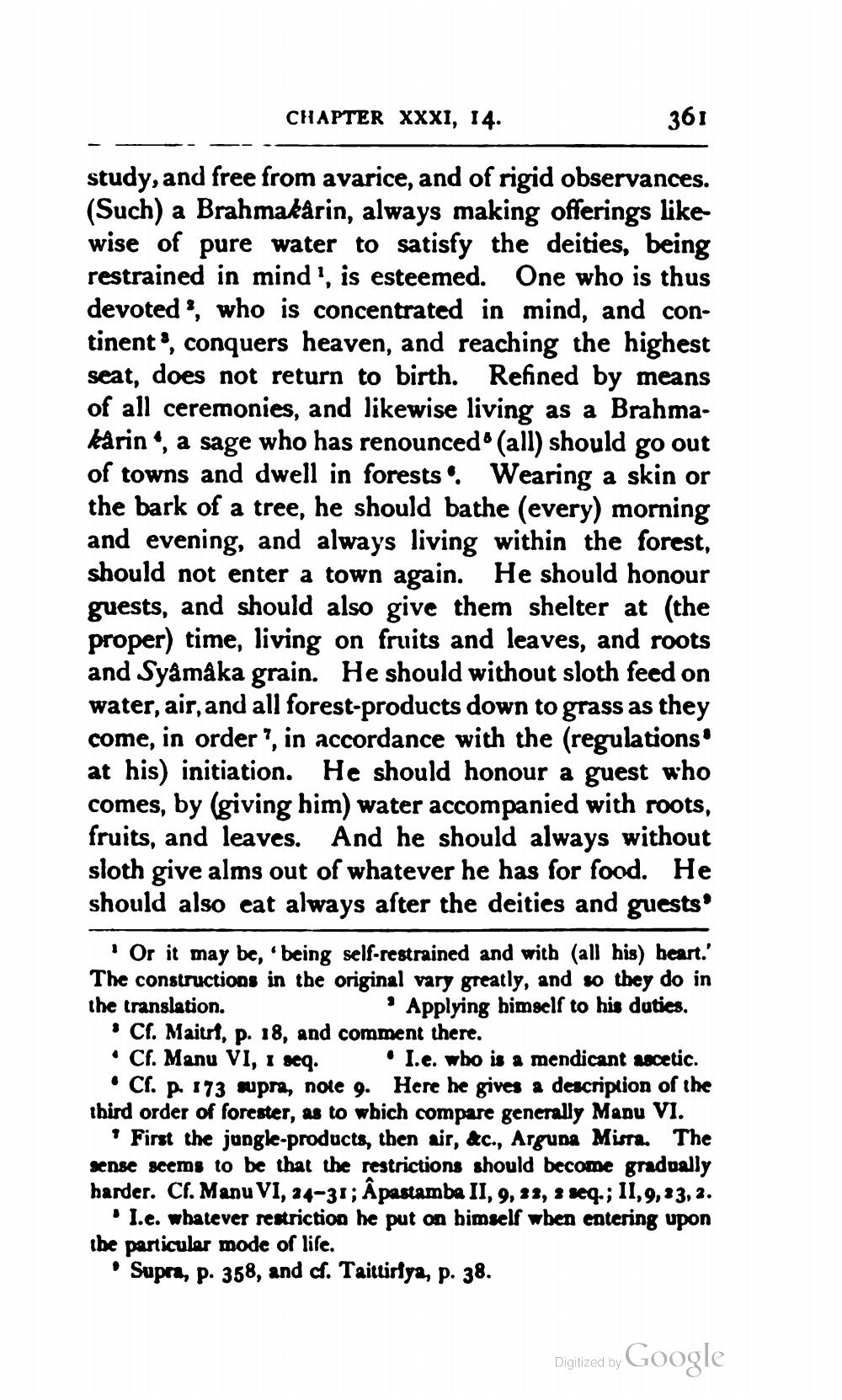________________
CHAPTER XXXI, 14.
361
study, and free from avarice, and of rigid observances. (Such) a Brahmakärin, always making offerings likewise of pure water to satisfy the deities, being restrained in mind', is esteemed. One who is thus devoted”, who is concentrated in mind, and continent", conquers heaven, and reaching the highest seat, does not return to birth. Refined by means of all ceremonies, and likewise living as a Brahmakärin “, a sage who has renounced" (all) should go out of towns and dwell in forests! Wearing a skin or the bark of a tree, he should bathe (every) morning and evening, and always living within the forest, should not enter a town again. He should honour guests, and should also give them shelter at (the proper) time, living on fruits and leaves, and roots and Syamâka grain. He should without sloth feed on water, air, and all forest-products down to grass as they come, in order ?, in accordance with the (regulations at his) initiation. He should honour a guest who comes, by (giving him) water accompanied with roots, fruits, and leaves. And he should always without sloth give alms out of whatever he has for food. He should also eat always after the deities and guests'
" Or it may be, being self-restrained and with all his) beart.' The constructions in the original vary greatly, and so they do in the translation.
Applying himself to his duties. • Cl. Maiuri, p. 18, and comment there. • Cl. Manu VI, 1 seq. I.e. who is a mendicant ascetic.
• Cf. p. 173 mpre, note 9. Here he gives a description of the third order of forester, as to wbich compare generally Manu VI.
• First the jungle-products, then air, &c., Arguna Misra. The xense seems to be that the restrictions should become gradually harder. Cl. Manu VI, 14-31; Âpastamba II, 9, 33, 3 seq.; 11,9,23, 2.
I.c. whatever restriction he put on himself when entering upon ibe particular mode of life.
• Supra, p. 358, and cf. Taittiriya, p. 38.
Digitized by Google




